Description
Dilmaj is written by Hamid Reza Shahabadi. Dilmaj’s book examines the life and thoughts of a semi-imaginary personality named Mirza Yusuf Khan Mostofi, known as Dilmaj, and narrates his life in detail and in attractive language.
The nominee for the One Day Prize, winner of the commendation plaque of the Literary Prize and Different Novel, as well as the Martyr Ghanipour Prize, are some of the honors of this book.
In Dilmaj book, our intention is to study the life and thoughts of Mirza Yusuf Khan Mostofi, known as Dilmaj. He has been widely dispersed in historical sources of the Qajar period; But no detailed study of his life has been made so far, and his face remains unknown. In the historical sources, Mirza Yusuf Khan is a complex and sometimes incomprehensible figure.
Some have praised him and some have despised him, both to the extreme. In the view of the first group, Mirza Yousef was “one of those patriots who did not stand up for the freedom and progress of Iranian civilization” and in the view of the other group, “there was no betrayal that he did not commit and there was no viciousness that did not occur.” They have taken the path of moderation and have refrained from making explicit judgments about him.
One of them is Ahmad Kasravi, who wrote about Mirza Youssef: “He was one of the activists for freedom. “Although it has been said that he has been walking in Akhshij Mihan from the very beginning.” His presence in the secret Jamaat of the Freemasons made him a mysterious figure, and according to Kasravi, “we will not be able to judge Mirza Yusuf Khan because we are not aware of their thoughts and wishes.”
Our best and most important source for understanding the early years of Mirza Yusuf’s life is his autobiography. In this biography, Mirza Yusuf describes how he was born, and his family:
“According to my father’s record on the back cover of the words of God Almighty, my birth took place in Rajab 1303 in Tehran, Oudlajan neighborhood. According to my mother, I set foot in this world in the middle of a cold winter night. Due to the extreme cold, snow and blizzard, it was difficult to bring the midwife home and my mother gave birth to me with difficulty.
It seems that in that blizzard, my father followed the midwife on foot, and when the midwife returned, she fell to the ground and broke her leg. My father takes her to Cole and brings her home to pull me out of my mother’s womb with a broken leg. After that, both the mother and the midwife sleep together until the morning arrives and the midwife heals the midwife’s pain.
My father, Mirza Younes, was originally from Sultanabad and was related to the Farahani family through his mother. During the stay of Mirza Bozorg, the deputy minister of Abbas Mirza, the viceroy in Tabriz, my father was in the IRGC. Until he was wounded in the thigh in the battle of Yerevan with the Russian forces and it was no longer possible for him to sit on a horse. After the IRGC, he resigned and started working for the court.
For some time, he was in charge of the revenue and expenditure offices of Abbas Mirza’s corps; But after his death he became unemployed. He stayed at home until the young Nasser al-Din Shah ascended the throne and his minister, Mirzataghi Khan Amirkabir, took over. Amir Kabir, who himself had a connection with the Ghaem family, respected the relatives of this family, so my father went to him and worked for a while in Mostafa as a tax collector.
Amir cherished my father not only because he was from a vassal family. But because he was not a bribe-taker and did not cheat on taxes. My father reformed many tax offices. He wrote down the income and expenses accurately and decided on the false principles of the expenses. In general, he established order in that part of the tax in which he ruled, but this was his disaster. After Amir’s dismissal, they immediately apologized to my father and fired him.
From then on, he stayed at home, and our affairs passed to my mother with only a small inheritance of inherited property, which was a good year and a bad year. If it rained and the crop survived the looting of Lorestani riders, something would happen to us and our affairs would be over for a year. And if there was a drought or the crop was plundered, both the peasants would fall and we would have a hard and useless year.
My mother, Alieh Khatoon, was the daughter of Mashaallah Khan, one of the Khans of Sultanabad, who once had wealth and possessions. In Iraq, Ajam was famous everywhere until his only son, who had five daughters, died of typhoid fever at a young age. From then on, Mashaallah Khan contracted a mental illness due to excessive grief and lamentation, and he stopped running his property. Her children were all girls and she was unable to interfere in property affairs.
Only his wife, Razia Khatun, occasionally uses his hands, which did not work out, and in the end, Mashaallah Khan’s property was partially looted by the ruler and the viceroy, and part of it was sold and spent on his livelihood, which in the last years of his life He was not in bondage. After his death, a small portion remained, which was also divided among his five daughters after deducting Sharia funds. »
The financial situation of Mirza Yusuf’s family was worse than he himself had said. In this regard, as in other cases, he has refused to explicitly state the truth and has covered it up. His life situation can be found in the memoirs of Mohammad Ali Foroughi Zaka-ol-Molk, where he writes about Mirza Yusuf’s visit to his father’s house:
“He was a teenager of eleven, twelve years old, whose pale and yellow face indicated constant hunger and lack of strength and adequate food. Menderes was wearing gray with black debit pants that had a tastefully patched bottom below his right knee. His white cheeks were so tight that whenever you thought his fingers would stick out of them. Due to the narrowness of the guts, it was difficult for him to walk, and sometimes he walked confused.
Nevertheless, he was very polite. He had calm eyes that were often fixed on the ground due to the veil. The days when he came to our house for education, whenever our servant Suleiman brought a plate of food from cookies, baklava and syrup to sugar, sugar and nutmeg and put it on the table for the children to eat, I saw that Ali Despite his desire to eat all that macaroni, he refuses to miss the assembly until my brother Abul Hassan and I and the other children reach out first and get something to eat. After that he was busy eating. He always lifted enough and never went to extremes. Although I was not old in those years, I knew very well that he could not get enough, but he kept his size so that he would not reveal the weakness of his family and his occasional hunger in the eyes of others. »
Mirza Yusuf himself did not write much about his seven years of education in the Foroughi family. He remembers the Foroughi family with great respect everywhere. Especially from the father of the family of Mohammad Hussein Khan Zaka-ol-Molk, who usually adds the phrase “which has a great right on my neck” when mentioning his name. He wrote about how he went to Foroughi’s house:
“Mohammad Hussein Khan has been in contact with my father since he was young. During the years that my father was working in the financial system of the late Mirzataghi Khan Amirkabir, the two knew each other and had characteristics. My father’s immense interest in Hakim Tus and his Shahnameh was related to Mohammad Hussein Khan, who also loved the Shahnameh and enjoyed reading it with my father.
However, after my father left home and Mohammad Hussein Khan temporarily left for Isfahan, there was some separation between the two. They may not have seen each other for seven years. At that time, my father had entrusted me and my older brother Yaqub to a mullah named Karbalaei Ghorban, who had a home school, for education. We studied with him for three years. We sat in the same room with other children on old mattresses or pieces of felt and kilims and listened to the lessons. My brother Ya’qub did not go to school for more than a year and reluctantly asked his father to send him to a job in the market, and finally he went as a carpentry student. But I stayed. In the first and second years, I learned from the Arabic alphabet and the recitation of the thirtieth part of the Qur’an to the abjad arithmetic and the first and second chapters of Golestan. But in the third year, the mullah started again from the beginning instead of learning something new, and I, hoping to learn more, realized that the mullah himself did not know more, and it was clear that we would not learn more.
Mohammad Hussein Khan Zaka-ol-Molk came to school at home one day. He had some fun with Mullah and then inquired one by one of us who were his students. Ask everyone something. He asked some of the alphabets, some the names of the celestial constellations, and when he reached me, he asked me to read the alphabet to him. I immediately enumerated from Abjad to Zaza for him. After that, he wanted me to read the first chapter of Golestan to him, and I started reading from memory.
I was just reading and moving forward when he said, “Hold on.” “Do you know the second chapter?” He asked, and I immediately started reading the second chapter. It is also safe and error-free. Mohammad Hussein Khan then asked, “What is the Qur’an?” “Do you know?” I said, “Uncle, I forgot the part.” Then he asked my father’s name, and when I said his name, he was excited and said, “We were old friends.” “After that, he inquired and took our home address and left.”
This meeting with Mohammad Hussein Khan changed the course of Mirza Yusuf’s life. That night, Mohammad Hussein Khan went to Mirza Younes’s house and, remembering the past, offered to leave his son’s education to him. Mirzaiones evades first. Perhaps his evasion was due to his lack of financial means, which he could not afford to pay for his son’s education at Zaka al-Molk’s house. But Mohammad Hussein Khan insists and assures that he will willingly pay for Yusuf’s education out of his own pocket. Without having a motive on anyone. Mirza Yunus is finally convinced and allows his son to leave school and go to Mohammad Hussein Khan’s house.
In those years, Mohammad Hussein Khan made great efforts to discover talented children and adolescents and educate them in a new way. Many important political and scientific figures of Iran were first trained in the house of Foroughis. Mohammad Ali Foroughi described his father’s house as follows:
“Downstairs in our mansion, next to a wooden staircase that winds up and goes upstairs, was a large table made of ebony wood that a relative had brought with him from Russia years ago and sold to my father. The table was beautifully carved with various motifs from flowers and chickens to geometric shapes, and the edge was as smooth as one or two books and notebooks. Five or six young people sat around this table most days; My brother Abolhassan and I and others whom my father knew as talented and intelligent brought me home to study. On the table was a large chair with an embroidered velvet mattress and a wooden back with gold studs around it;
That was Master’s place. The other chairs were simple and short, where we sat and listened to the master and wrote whatever he ordered. The edge of the table was up to our chests, but it was not difficult for us to write on it; To make it easier for both hands, he put it on it and leaned to one side. So that we can see the page well and easily rotate the pen on it. “Next to the table attached to the wall was a large black cast iron stove that we used to collect in the winter with the other children from the garden in front of the white wood mansion and throw one by one, staring at its warm, warm blue flames.”
About Dilmaj book
Dilmaj’s book narrates the confusions of intellectuals in the late Qajar period. Shahabadi, who mostly deals with historical issues in his novels, in the novel Dilmaj narrates the story of a fictional character named Mirza Yusuf Khan Mostofi known as Dilmaj. The novel begins with a description of his childhood and education. Mirza Yusuf becomes a modernist and freedom-loving person who determines the rest of the novel due to his education and travels with some of the professors and intellectuals of the time.
Mirza Yusuf Khan Mostofi, the main character of the story, has unknown and mysterious figures in history. Some people knew him as someone who had a patriotic pain and was working for freedom and the development of Iranian civilization. Others considered him a villain who betrayed him.
The historical feature of the novel is highlighted by the presence of characters such as “Mohammad Ali Foroughi”, “Mirza Malek Khan Nazim al-Dawlah”, “Nasser al-Din Shah Qajar”, “Abbas Mirza” and و and puts the audience between the border of fantasy and reality. The influence of Freemasonry on the intellectuals of that time is another subject of the author in the novel.
Who do we recommend reading Dilmaj’s book?
We recommend this book to all those who are interested in historical stories.
Part of Dilmaj book
Mirza Yusuf’s years of love are perhaps the quietest years of his life. Unlike other lovers, he does not show self-pity and anxiety and does not look forward to connecting. It is as if he enjoys falling in love before he thinks about connecting. He has spent his youth full of this pleasure. He himself wrote in his treatise on love:
“If the hope of connection is in the heart of the lover and the lover is away from Ningard, it is a joy that is not connected. “Because the principle of love is in embarrassment and love has no meaning other than separation.”
Although Mirza Yusuf wrote this treatise in the following years, after the unpleasant ending of his love story for ornament, it can be seen from the lines that he spent his years of love slowly and away from confusion and anxiety. Mirza Youssef has only once felt agitated and restless. And that is when the ornament of the house of the Foroughis leaves. Because “the reputation of teaching singing by a non-mahram man is complex among the people, most of his staying at home is notorious for both him and Mohammad Hussein Khan, and perhaps the training of the novices was completely dismantled. “So he left home and sometimes studied with Mohammad Hussein Khan in their own house.”
Zinat’s departure from Mohammad Hussein Khan’s house disturbs Mirza Yusuf:
“It was as if I had lost something. I had lost a part of my heart. Before that, I would get out of bed every morning hoping to get out of the mansion at dusk, when the class was over at Mohammad Hussein Khan’s house, and to walk through the garden to the back of the mansion, near a latticed window with stained glass, under the pretext of taking my notes. It was beautiful and had three large vases of geraniums at its feet.
The softness of the silk and the softness of the water that flowed from that window made it so intoxicating that sometimes I wanted to fill it like birds perched on branches and jump from branch to branch. But I was sitting anyway. He reads, and I flip through my notebook, which is full of notes on mathematics, geometry, and philosophy, and sometimes I write poems on the white pages and serve those poems on my body. “It was only recently that Zinat left that house, that garden and that window.”
1- Introducing the book on YouTube
2- Introducing the book in Aparat

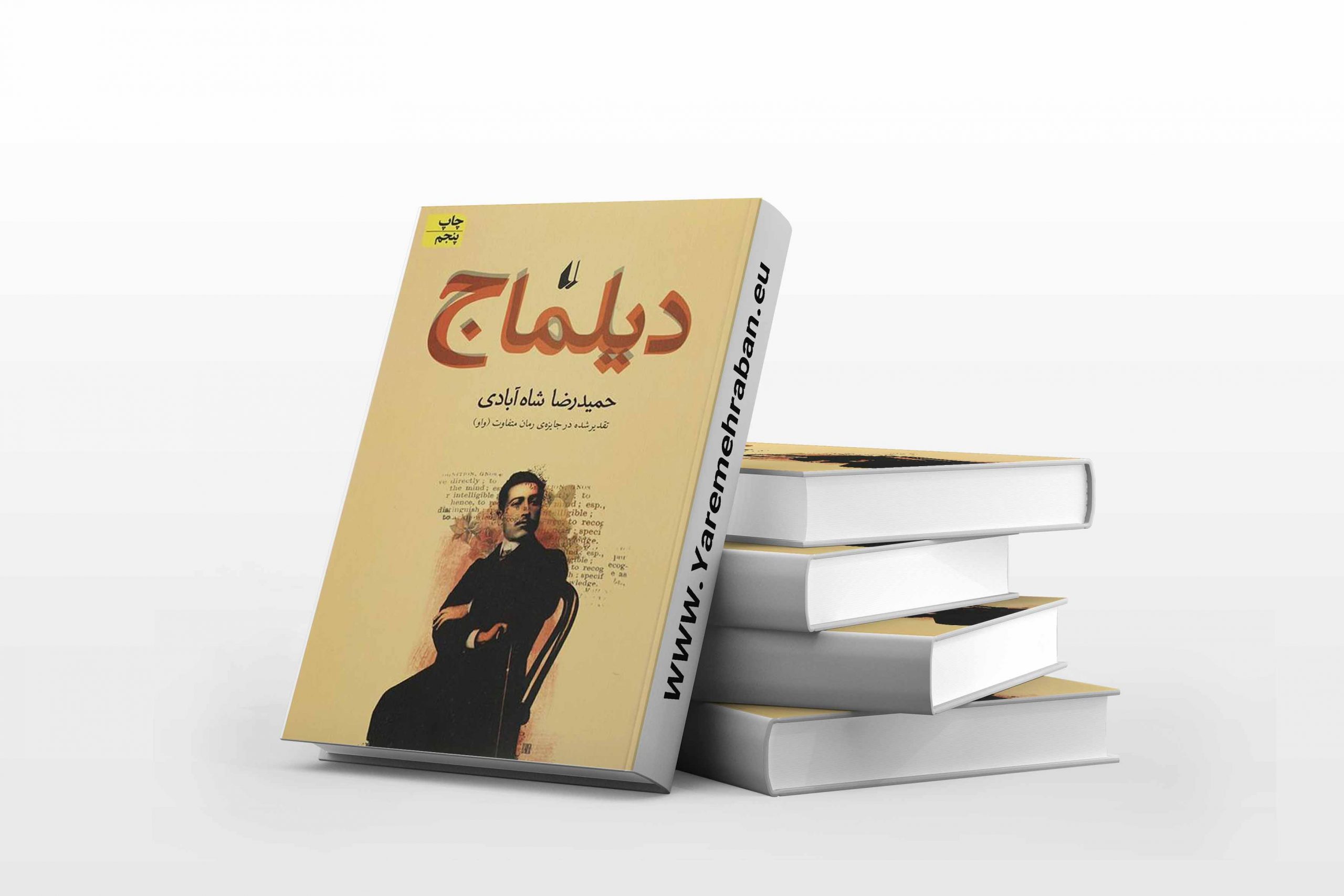
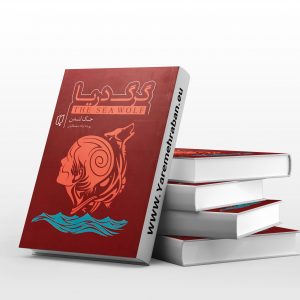
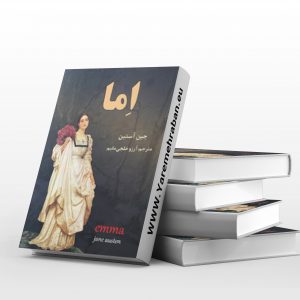
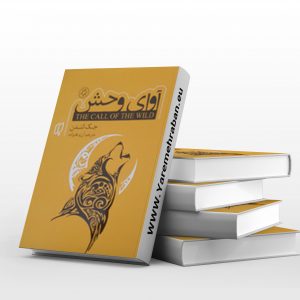
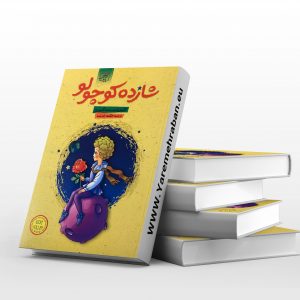
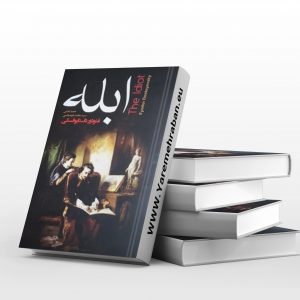
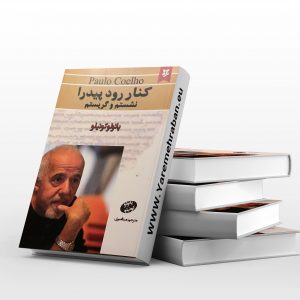
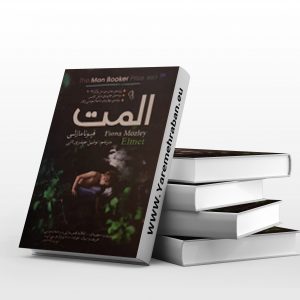

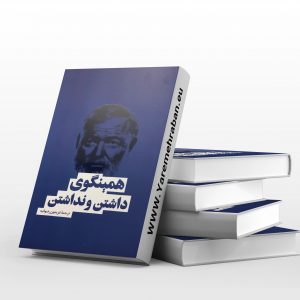
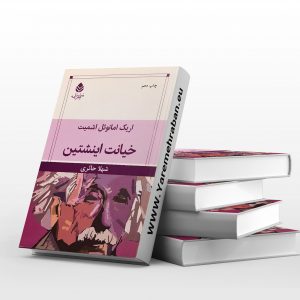
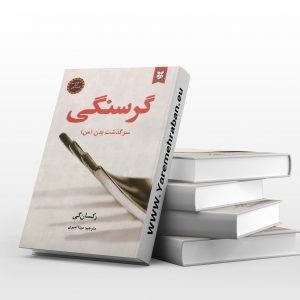
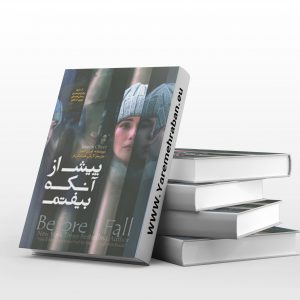
Reviews
There are no reviews yet.